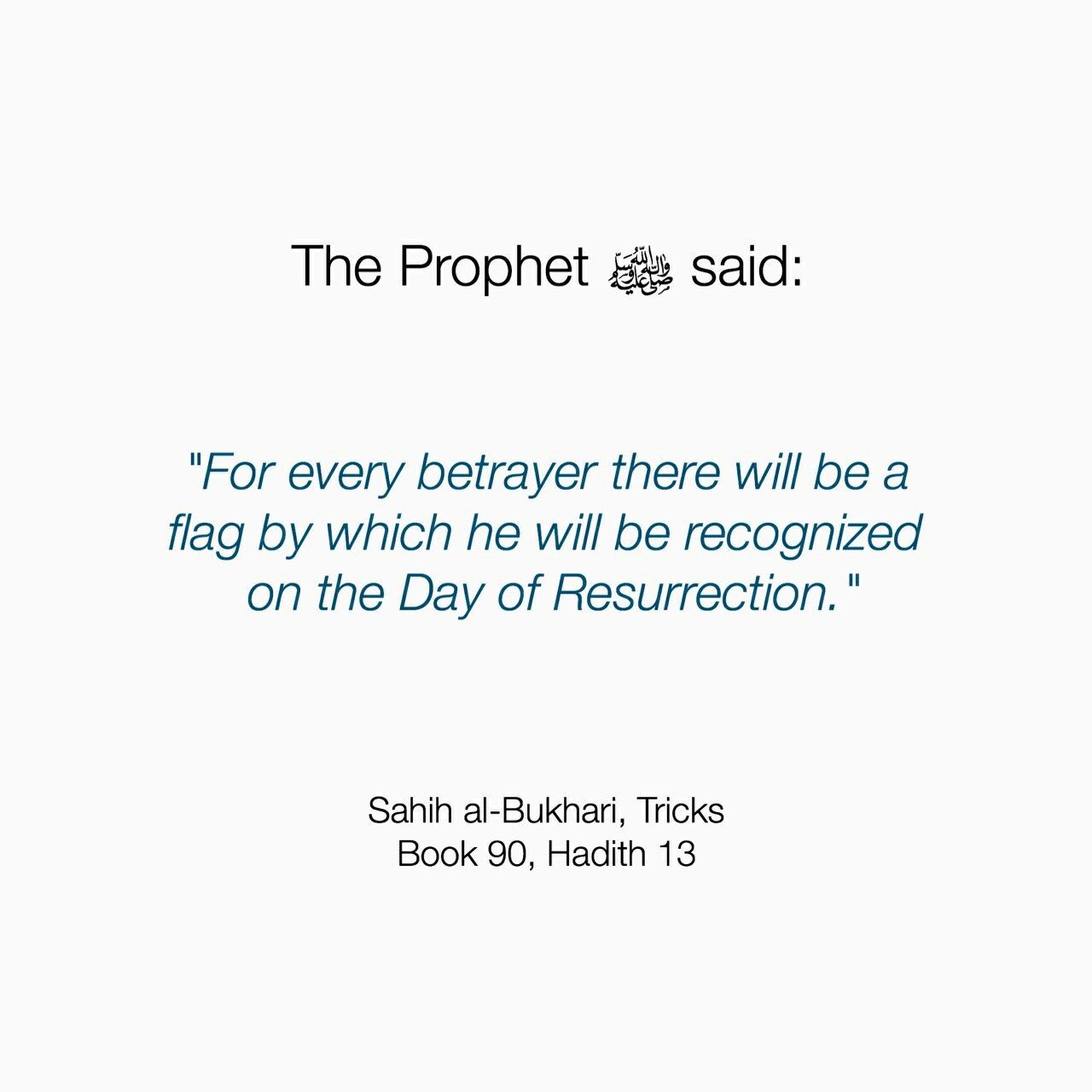Betrayal Part One

Do not betray anyone who places his trust in you, even if he betrays you. And do not disclose his secrets, even if he discloses yours. -Imam Ali (AS)
They say that trust takes years to build, seconds to break, and forever to repair. For many, broken trust is not even repairable. Sometimes the pain from being betrayed is just too much for us to bear. Not to mention the fear we have of it happening again. So what do we do when we have been betrayed? What happens when we are the betrayer? Is it possible to heal and move on? If so, how do we do that?
When we feel Betrayed

So often we find ourselves in situations where we put our trust into another. Whether it is a spouse, family member, or a friend, having trust broken can have lasting effects on all parties involved. When we put our trust in someone, we are essentially giving them the most sacred parts of us. Our love, our secrets, the side that not everyone gets to see. Although there are many different levels of betrayal, they are all difficult to bounce back from. But not impossible. Before forgiveness and healing can begin, there are a few things that must be understood and done.
Steps to forgiveness
- Acknowledge
We must first acknowledge the hurt that has been caused and how it has affected us. This can be difficult because this involves us realizing that not everyone around us is trustworthy. Acknowledging that some of the people around us are not who we thought they were.
- Acceptance
We must accept the fact that what has been done has been done. We can not change the past. We must either accept it and begin the process of moving on or decide not to. There is no point in trying to move forward if we are unable to leave the past where it belongs. In the past.
- Determine
We also have to determine whether or not we even want to hold onto the relationship. There are times when it may seem easier to just let the relationship go. This can be difficult when it involves a spouse or family member.
- Repair
This can be really hard. Repairing trust that has been broken is probably one of the most difficult things to overcome. Once we have decided that the relationship is worth saving and that we are willing to leave the past behind and start fresh, we can begin to repair any damage that has been done. Or at least try.
- Learn
Here is an even harder step. We must learn from our mistakes and learn to forgive ourselves. I personally have beat myself up over times when I have trusted the wrong people. It’s important that we forgive ourselves and move on. Maybe another lesson to be learned is to not be so trusting with some people.
- Forgiveness
The hardest part of all. Forgiveness. Forgiveness is the release of resentment or anger. Forgiveness doesn’t mean reconciliation. It doesn’t mean that we have to return to the same relationship or accept the same harmful behaviors from our offender. However, forgiveness is important for our own mental health and is a key factor in our ability to move on.
First we must understand that it is near impossible to regain trust without first regaining control of our emotional well-being by finding our inner peace with the situation. Many of us struggle with forgiveness because we don’t want to let the other person off the hook for what they have done. Not only do we want them to fully understand what they have done, but we want them to be punished for their crimes so to speak. We want them to feel the pain that we felt, along with any other emotions we’ve felt as a result. However, chances are that won’t happen. Sure they may feel guilt, remorse, but at the end of the day they will most likely never feel exactly what we are feeling or have felt. So first we must make peace with ourselves and the situation. We need to acknowledge fully what has happened and accept it for what it is. Then we need to decide if moving on is even possible. Part of forgiveness and moving on is realizing that once it’s done, it’s done. It is now in the past and it needs to stay there. Any discussions that have anything to do with what happened need to be for the purpose of healing, not hurting. It does not need to be brought up everytime there is an argument or disagreement. Rebuilding broken trust takes a lot of time and work but if both parties are willing to do just that then perhaps it can be done. Recovery from a betrayal can be a long journey. Everyone walks the road to healing at a different pace. Betrayal traumas involve the perpetrator being in a close relationship with the victim. Due to this, their actions feel deeply personal, rather than random. If someone pushed you as you were walking down the street, you would experience a sense of shock and fear but it wouldn’t cause you to doubt any of your closest relationships. Betrayal trauma is different because it jeopardizes the safety of the very relationship you would normally turn to for comfort when distressed, which causes an increased sense of vulnerability at a time when support is most needed. Betrayal by someone close to you, like a parent or a spouse, is a unique form of trauma and one that hurts tremendously. When a person who is supposed to love, respect, and support you betrays you, your world can feel like it’s shattering.
Betrayal in Islam

When we entrust someone with a secret and then they disclose said secret, they have betrayed us. If we entrust someone with our money and they then misuse it, they have also broken our trust. When a spouse makes a commitment and is then unfaithful, they have broken that trust. All of these are examples of betrayal.
All these acts indicate a weakness in faith and an inferiority of the soul. Betrayal is not only a major sin, but it is also hypocrisy in action. The Prophet, sallallaahu ‘alayhi wa sallam, said:
“The signs of a hypocrite are three: when he speaks, he lies; when he makes a promise, he breaks it; and when he is entrusted, he betrays [the trust].” A disloyal person is disliked, both by people and Allah The Almighty, as He Says (what means), {Indeed, Allah does not like everyone treacherous and ungrateful} [Quran 22: 38]. Such a man risks disclosure of his own secrets and exposing himself to scandals; and, none will defend or argue on his behalf, as he does not deserve it and because Allah The Almighty Says (what means): {And do not be for the deceitful an advocate.} [Quran 4: 105]
Practically all the moral values in Islam may be said to have something to do with the idea of trustworthiness as, according to Prophet Muhammad, dishonesty shuns belief and faith.The most destructive unjust deed to one’s self, family, society and state revolves around three vices: lying, breaking a promise and betraying a trust.
A Muslim can never be a habitual liar nor a betrayer of trust as far as his ethics and morality is concerned.
The Prophet said that the one, who does not possess honesty, does not possess faith, and the one who does not keep his pledge, is not a Muslim (la imana li-man la amanata lahu wa la dina li-man la ‘ahda lahu, narrated by Ahmad, al-Tabarani, and al-Bayhaqi).
Following the Prophet, the first Caliph Abu Bakr al-Siddiq stated that “dishonesty shuns belief and faith (al-kidhb mujanab al-Iman),” while the second, Umar ibn al-Khattab, said that “there is no mu’min who is deceitful (la tajid al-mu’min kadhdhaban).”
In al-Hasan al-Basri’s apt summation of religious lip-service, “being untruthful is that in which hypocrisy is composed (al-kidhb jima’ al-nifaq)”.
Indeed, being untruthful contradicts being obedient and faithful to God.
Our Trust In Allah
Often when we experience betrayal, we begin to question why our Creator would allow us to go through such a thing. Many times our relationship with Allah swt can be affected by such betrayal. When we are doing all that we can to live a life that pleases Him and then He allows such things to happen. I am by no means trying to exaggerate the situation, but so often it is a spouse or dear friend who has betrayed us. Someone who we feel we need in our lives. However, oftentimes we are given these trials so that we can see just who is all around us. Chances are we’ve seen many red flags and chosen to ignore them. This may be the only way for Allah to reveal to us who is really for us and who is not. Sadly not everyone we think is in our corner really is. They say that everyone in life is a blessing or a lesson. What I have learned is that Allah swt places and removes people in and from our lives for a reason.
May Allah protect us from those who intend to do harm to us and surround us with those who are good for us. InshaAllah
Sister Rebecca is a SAHM living in Houston Texas. Married for 13 years with two children, and a revert since 2014, her hobbies include cooking, reading, and spending time with family.
Recent Posts:
- Navigating Financial Independence: Essential Tips for Young Adults
- The Importance of Mental Health in Marriage: An Islamic Perspective
- Eco-Elegant Nuptials: How to Plan a Stylish and Sustainable Wedding
- Modern Matrimony: Tech Tools to Perfect Your Wedding Planning Process
- 5 Budget-Friendly Ways to Prep Your Home for Your Wedding Day
ELEPHANT ROOT TRICK
NEWERA PRIMERA
NEWERA PRIMERA
ELEPHANT ROOT TRICK






ELEPHANT ROOT TRICK